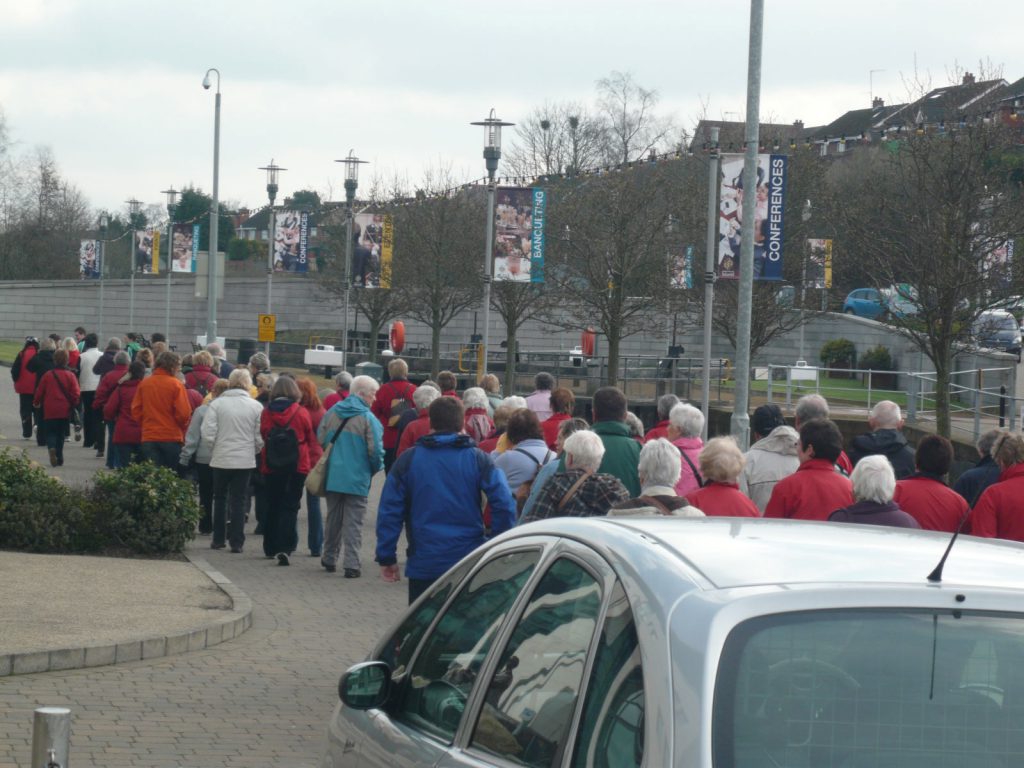Why Walk?
Walking is the near perfect activity to improving health and wellbeing. Walking for Health is aimed at adults who don’t do any/or enough activity to benefit health and well-being.
Health walks are suitable for people of all ages and abilities, and not only promote the physical health benefits of being active, but encourage positive mental health and social interaction.
Research confirms that adults and older people should participate in two and a half hours of moderate to vigorous physical activity each week, and that all adults should aim to do some physical activity each day. Walking on a regular basis can really help you meet this physical activity target and is an ideal activity for most people as it can be done anytime, any place with friends, family members or work colleagues. Walking is free, fun and has huge benefits for your health & well-being.
Regular walking at a *moderate intensity can:
- Make you feel good
- Give you more energy
- Reduce stress and help you sleep better
- Keep your heart ‘strong’ and reduce blood pressure
- Help manage your weight
- Reduce the risk of heart disease
- Reduce the risk of a number of cancers, particularly bowel and breast cancer
- Reduce the risk of type 2 diabetes
- Improve your mood and reduces the risk of depression
*Moderate intensity = breathing a bit faster, feeling a bit warmer and heart beating a bit faster – you should still be able to hold a conversation while you walk!
According to government guidelines, adults need to undertake at least 150 minutes of *moderate intensity activity per week. That’s 30 minutes of activity, five days a week.
If it’s too difficult to walk for 30 minutes at one time, do regular small bouts ( 3 x 10 minutes or 2 x 15 minutes) and gradually build up to longer sessions. Physical activity built into a daily lifestyle plan is also one of the most effective ways to assist with weight loss and keep weight off once it’s lost.
Some suggestions to build walking into your daily routine may include:
- Taking the stairs instead of the lift (for at least part of the way).
- Getting off public transport one stop earlier and walking to work or home.
- Walking (not driving) to local shops.
- Walking the dog (or your neighbour’s dog!).
Walking is low impact, requires little equipment, can be done at any time of day and can be performed at your own pace. You can get out and walk without worrying about the risks associated with some more vigorous forms of exercise. Walking is also a great form of physical activity for people who are overweight, elderly or who haven’t been active in a long time. Walking for fun and fitness isn’t limited to strolling by yourself, there are various walking groups you can join in local areas throughout South Eastern Trust.
Walking For Health website: www.walkingforhealth.org.uk
Physical Activity Guidelines: www.gov.uk/government/publications/uk-physical-activity-guidelines







